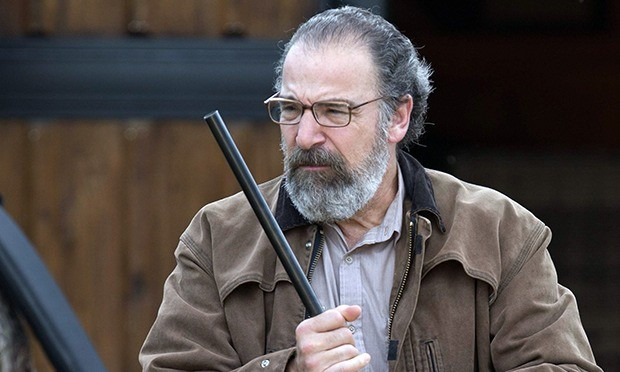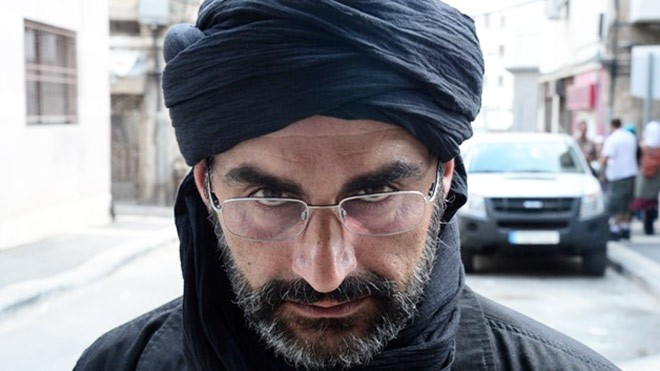Homeland: US-Iran Deal Shows CIA Thriller out of Touch

It's been hailed as a breakthrough agreement that could thaw Iran's relationship with the West. Days of intensive discussions in Geneva resulted in concessions from Iran to reverse its nuclear programme in return for a reduction in economic sanctions imposed by the world's powers. It's a remarkable deal that a year ago no-one would have seen coming, least of all the writers of Homeland.
The CIA thriller is well into its third season, but its plot involving a 9/11 style attack by Iran and the intelligence agency's attempts to place a mole within the regime now feels desperately out of touch. Iran has rarely been depicted favourably in US media; just look at last year's Oscar-winner Argo, which reduced the complex state of the country after the 1979 revolution to an aggressive and inhospitable anti-American backwater.
But whereas Argo is an inauthentic period piece, the Iran of Homeland is depicted as a modern threat, a rogue nation that could go nuclear at any moment. The second season finale ended with the CIA headquarters bombed, a devastating attack that killed over 200 people and was traced back to Iran. In the wake of such a calamity, acting CIA chief Saul Berenson found himself locking horns with his soon-to-be-successor, Senator Lockhart (whose manner and look deliberately evoke Dick Cheney), over which direction the intelligence agency should take.
Saul is old-fashioned and wants to use terrorist mastermind Majid Javadi as an undercover agent inside Iran. The hawkish Lockhart instead would see Javadi publicly tried in the US, and let drone strikes on Iran send a clear message to the Islamic Republic. These are the only options the show presents as a way of stopping Iran building a nuclear weapon. Diplomacy is never even on the table.
Seeing as the story for the third season would have been written months ago, it's perhaps unfair to criticise Homeland's writers for providing such a myopic view of Iran. But the show's efforts to provide an insightful analysis of US intelligence policy have always been hampered by its paranoiac depiction of a US constantly under attack from terrorists.

When the adaptation of Israeli drama Prisoners of War arrived in late 2011 it was a breath of fresh air, the post-9/11 conspiracy thriller that promised to provide a more nuanced look of CIA policy than the right-wing wet dream that was 24. The only problem was that the villain they were trying to stop, al-Qaeda terrorist Abu Nazir, already felt outdated seeing as the man he was based on, Osama Bin Laden, had been killed by US Marines earlier that year.
Instead of the withered al-Qaeda founder who hid away for a decade before being gunned down in cold blood at a Pakistan safe house, Nazir played on the bogey man image of Bin Laden portrayed by the West's media, a supervillain hatching diabolical schemes as farfetched as remotely switching off the Vice President's pacemaker.
The show's writers tried to move away from such absurd plotlines when they switched focus from al-Qaeda to Iran, but have still found themselves out of touch with both the reality of the Middle East, and how intelligence gathering organisations operate back in the US. The elephant in the room throughout the whole third season has been the NSA spying scandal, a leak far more damaging to the America's global reputation than any fictionalised bomb attack on the CIA could be.
When Homeland first started it was all about such surveillance, as CIA officer Carrie Mathison managed to gain permission to wiretap and monitor US marine Nicholas Brody's house on suspicion that he had been turned by Nazir. Both the story's ambiguity over whether Brody had indeed turned traitor, as well as the ethical dilemma of spying on a fellow US citizen in the name of defence, was enthralling to watch. It's this level of topical analysis that Homeland needs to return to if it is to stay relevant.
READ:
Homeland Season 3 Episode 8 Review - A Red Wheelbarrow
Iran and World Powers Clinch Nuclear Deal in Geneva
© Copyright IBTimes 2025. All rights reserved.






















